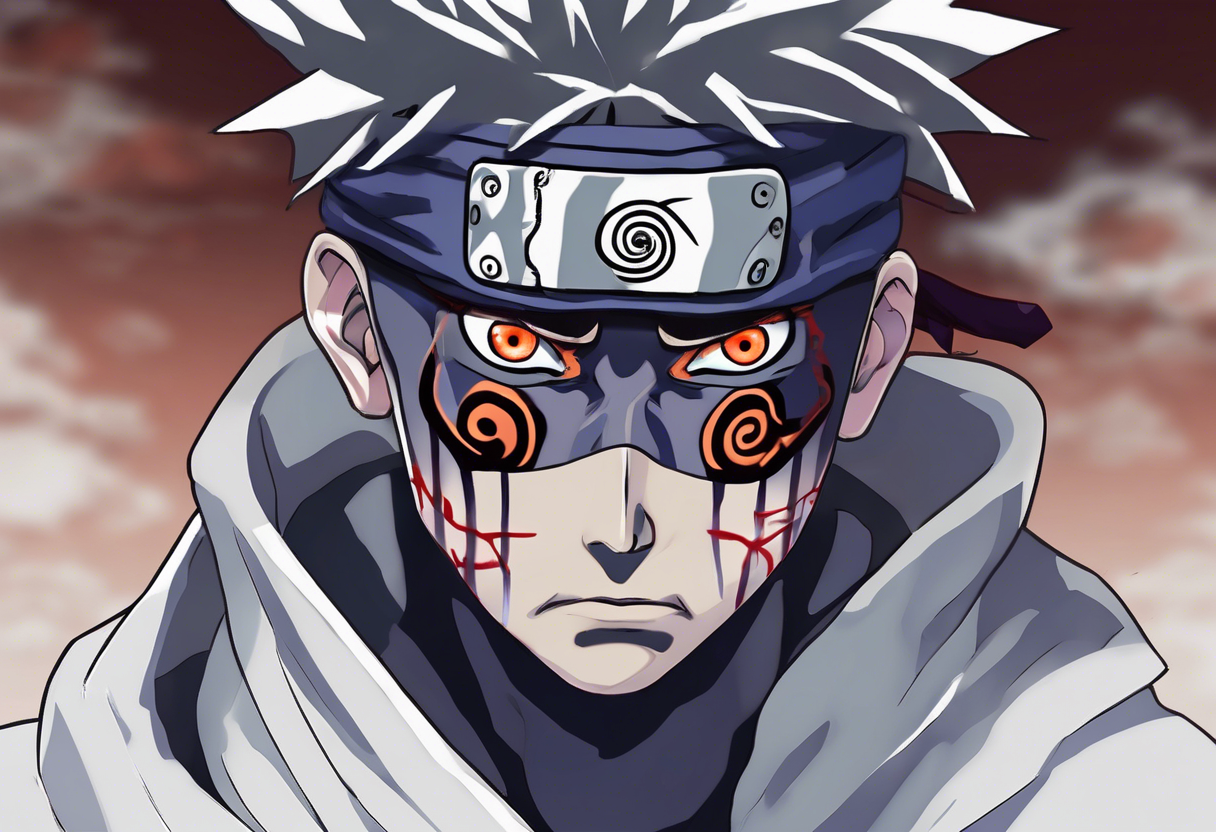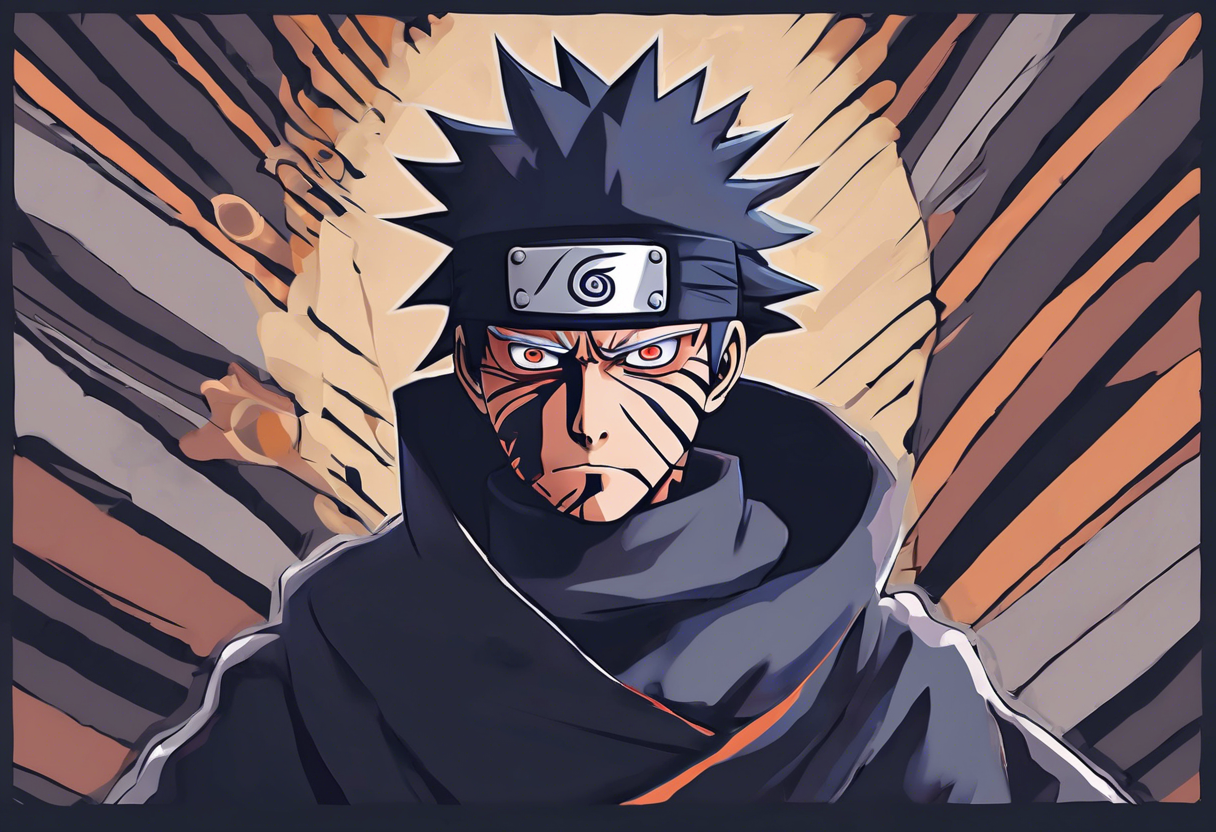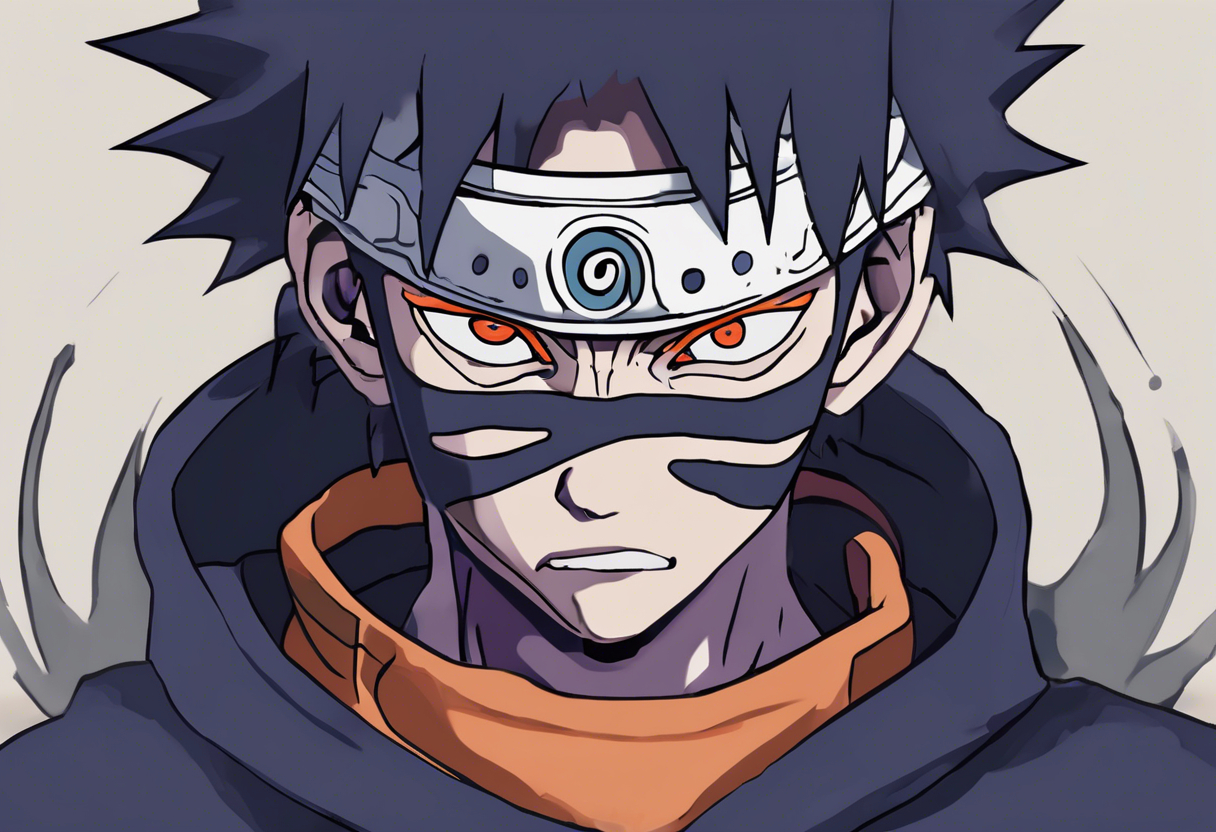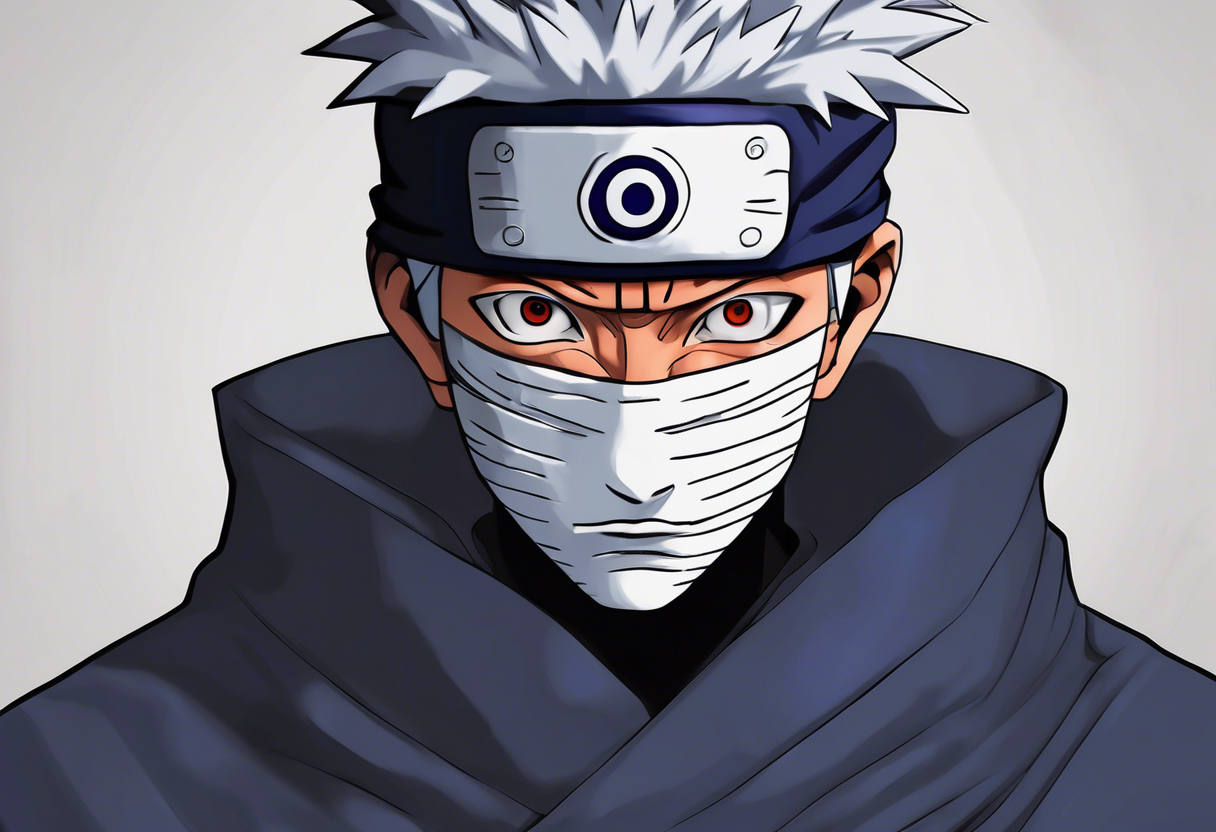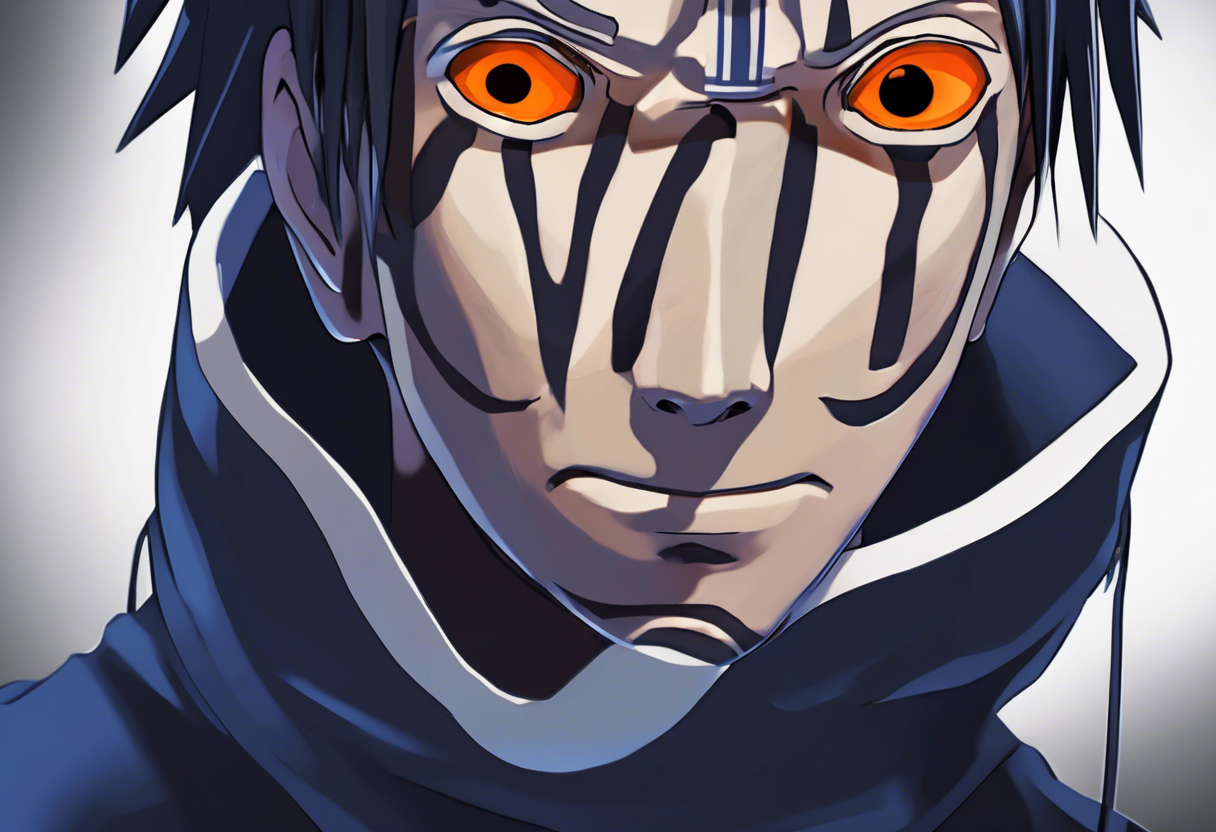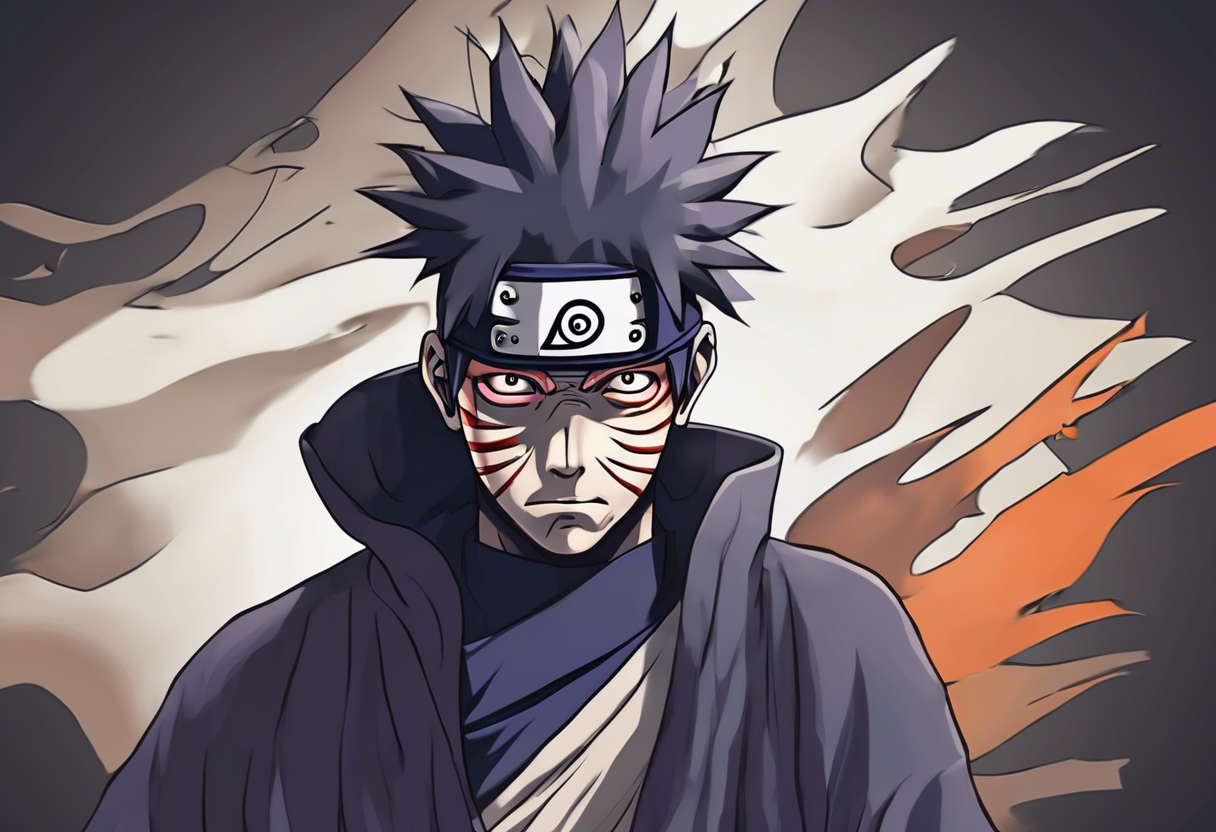Contents
Obito Uchiha: A Complex and Redeemed Character in the Naruto Series
Introduction
Obito Uchiha is a pivotal and complex character in the popular anime and manga series Naruto, created by Masashi Kishimoto. Initially introduced as a mysterious and masked figure known as Tobi, Obito’s true identity and backstory are gradually revealed, adding depth and complexity to the narrative. Born into the esteemed Uchiha clan in the Hidden Leaf Village, Obito’s life is marked by tragedy, transformation, and ultimately, redemption.
Obito’s creation and development are significant not only because of his intricate character arc but also due to his impact on the series’ overarching plot. His story intertwines with key characters such as Naruto Uzumaki, Kakashi Hatake, and Rin Nohara, making him an integral part of the Naruto universe. Obito’s character embodies themes of loss, betrayal, and the struggle for redemption, resonating deeply with audiences and contributing to the series’ enduring popularity.
Role in the Story
Obito Uchiha’s storyline is a central component of the Naruto series. Originally a member of Team Minato, which included Kakashi Hatake and Rin Nohara, Obito was believed to have died during a mission at the Kannabi Bridge during the Third Great Ninja War. However, he was rescued by Madara Uchiha, who found him severely injured and reconstructed half of his body using parts of Hashirama’s living clone [2][5].
Following his rescue, Obito’s life took a dramatic turn. Witnessing the death of Rin Nohara, whom he loved, at the hands of Kakashi (though it was later revealed that the event was orchestrated by Madara), Obito was consumed by grief and a desire for revenge. He joined forces with Madara, adopting the identity of Tobi and becoming a key figure in the Akatsuki organization. Obito’s primary goal was to implement the Eye of the Moon Plan, a scheme devised by Madara to control the world using the Infinite Tsukuyomi, a powerful illusion technique [1][5].
Throughout the series, Obito’s actions are driven by his complex motivations. He infiltrates Konoha, manipulates key figures like the Fourth Mizukage, and plays a crucial role in the extraction and control of the Nine-Tails, leading to the destruction of Konoha. His identity as Tobi remains hidden until he is revealed to the protagonists, marking a significant turning point in the narrative [2][5].
Obito’s relationships with other characters are multifaceted. His rivalry with Kakashi and unrequited love for Rin are pivotal to his character development. His mentorship under Madara and later interactions with Naruto Uzumaki also shape his journey. The revelation of Madara’s manipulation and the truth about Rin’s death lead Obito to a path of redemption, culminating in his sacrifice to protect Naruto and Sasuke Uchiha during the Fourth Great Ninja War [3][4].
Character Analysis
Obito Uchiha’s personality is a rich tapestry of introversion, intuition, and emotional depth. He can be classified as an INFP (Introverted, Intuitive, Feeling, Perceiving) personality type, characterized by his introverted nature, trust in his instincts, and empathetic decision-making process %[1].
As an Enneagram Type 4, "The Individualist," Obito exhibits a deep sense of self-awareness and introspection. He struggles with feelings of being misunderstood and isolated, often romanticizing his emotional experiences and seeking personal significance and uniqueness. These traits are evident in his reaction to Rin’s death and his subsequent actions as Tobi %[1].
Obito’s strengths include his remarkable abilities as a shinobi, particularly his mastery of the Sharingan and advanced Uchiha techniques. His intuitive nature and adaptability make him a formidable foe. However, his flaws, such as his tendency to succumb to despair and his initial nihilistic beliefs, also define his character. His journey is marked by internal turmoil between his desire for revenge and his longing for redemption, making him a compelling and relatable character %[1][4].
Themes and Symbolism
Obito Uchiha embodies several key themes in the Naruto series. His story is a poignant exploration of the human condition, reflecting themes of tragedy, loss, and the struggle for redemption. The cycle of hatred and the quest for peace are central to his character arc. Obito’s initial belief in the futility of life and his later realization of the power of compassion, forgiveness, and redemption underscore the series’ central message of breaking the cycle of hatred and finding hope in despair [4].
The character of Obito also symbolizes the dangers of losing hope and succumbing to despair. His transformation from a cheerful and ambitious young shinobi to a villainous figure, and ultimately to a redeemed hero, serves as a cautionary tale about the consequences of allowing pain and betrayal to define one’s actions. His redemption arc highlights the possibility of change and the importance of self-awareness and introspection [3][4].
Cultural Impact
Obito Uchiha has had a significant cultural impact, particularly among fans of the Naruto series. His complex character and dramatic redemption arc have made him one of the most beloved and misunderstood characters in the series. Fans appreciate the depth of his story, which resonates with themes of personal struggle and the human capacity for change.
In adaptations and spin-offs, Obito’s character has been portrayed with consistency, maintaining his complex and nuanced personality. His influence on popular culture is evident in fan art, cosplay, and discussions within anime communities. Obito’s story has also inspired other works and character archetypes, reflecting his enduring appeal as a character study in redemption and personal growth.
Critical Reception
Critics and audiences have perceived Obito Uchiha in various ways over time. Initially, he was seen as a mysterious and formidable villain, but as his backstory and motivations were revealed, he gained sympathy and admiration from fans. His redemption arc has been praised for its emotional depth and the way it humanizes a character who was once seen as purely antagonistic.
Some critics have noted that Obito’s character represents a nuanced exploration of the gray areas between good and evil, making him a compelling and relatable character. However, others have criticized the complexity of his storyline, arguing that it sometimes feels convoluted or overly dramatic. Despite these varying interpretations, Obito remains one of the most memorable and impactful characters in the Naruto series [3][4].
Legacy
Obito Uchiha’s legacy in the Naruto series is profound. His character arc from a young shinobi to a villain and ultimately to a redeemed hero is a testament to the power of resilience, compassion, and the belief in the possibility of change. His story serves as a central theme in the series, highlighting the importance of hope, forgiveness, and redemption.
In contemporary discussions, Obito’s character continues to inspire reflections on personal growth, the consequences of trauma, and the human capacity for redemption. His influence can be seen in other anime and manga series that explore similar themes of complex characters and redemption arcs.
Obito Uchiha’s enduring appeal lies in his relatability and the depth of his character. His journey from despair to redemption is a poignant reminder that even those who have lost their way can find a path back to goodness and contribute positively to the world around them.
References
- https://boo.world/database/profile/20421/obito-uchiha-personality-type
- https://incorporealityuchiha.weebly.com/obitos-story.html
- https://comicvine.gamespot.com/forums/gen-discussion-1/narutos-most-misunderstood-character-obito-uchiha-2202401/
- https://www.youtube.com/watch?v=oEw2RuckiW8
- https://wiki.sportskeeda.com/naruto/who-is-obito-uchiha

